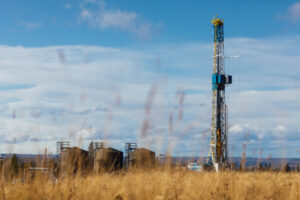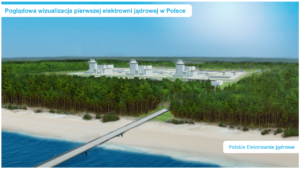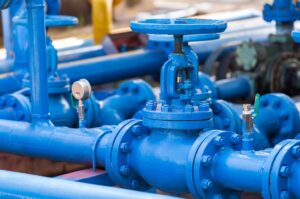The Russian media report that Austria, holding the presidency of the Council of the European Union, is opposed to the acceleration of work on the gas directive. Will Austria thereby seal the political and gas alliance with Russia and facilitate the construction of the controversial Nord Stream 2 gas pipeline? – writes Piotr Stępiński, editor of BiznesAlert.pl.
Austria insists on a pause
In a recent online edition of Vedomosti, they announced that the Austrian Chancellor, Sebastian Kurz, would not agree with the European Commission’s proposal to speed up the consideration of amendments to the gas directive. The new recommendations of Brussels, which contain recommendations to start work on the revision of this document, were to arrive in the Council of the European Union on 21 September, representatives of the governments of the member states that are part of the working group (Energy Working Party). Three days later, Sebastian Kurz, the Austrian Chancellor, holding the EU Presidency, was to answer that there are still too many contentious issues, which means that the discussion on the Directive can not be considered to have ended. According to Vedomosti, the authenticity of both documents was confirmed by „a European official and employee of a company that participates in one of the gas projects in Europe”. Interestingly, information on the topic is published only by the Russian media.
Nevertheless, the Platts agency informed the beginning of last week that the work on revising the directive was at a standstill. It was supposed to be the effect of a prolonged dispute at the diplomatic level. Although in April the European Parliament announced its readiness to work on the revision of the directive, the Bulgarian Presidency, from which Austrians took over the reins in the European Union, slowed them down. Bulgarians have earlier called for a homogeneous position of the European Union and the Member States on energy issues, pushing for the diversification of supplies, but at the same time they wanted to maintain good relations with Gazprom, due to the strong dependence on Russian raw materials.
There are many indications that Vienna is one of the main quarterly subjects of the gas directive. The proposed changes are intended to indicate that all pipelines, both land and underwater, that pass through the European Union must comply with EU rules. Gazprom would then have to act on the basis of transparent, European standards. This would be in contradiction with not only Russian but also Austrian interests, because one of these companies is involved in the construction of the controversial Nord Stream 2 gas pipeline – OMV.
Austria – Russia’s ally
The Austrian chancellor, who has recently met Vladimir Putin quite often, is favorably disposed towards the new Russian-German connection on the Baltic Sea. During a recent meeting in Russia, he once again supported the construction of Nord Stream 2, claiming that all the countries involved in the project support its implementation. At the same time, it does not heed the opposition of the Central and Eastern European countries, including Poland, which repeatedly indicated that Nord Stream 2 is a politically motivated gas pipeline to split the Old Continent and enable the goal of strengthening Russia’s dominance in the European gas market. The authorities in Moscow know that thanks to the diversification policy actively pursued by the countries of the region, their monopoly position is under threat. Therefore, they are looking for allies who will help maintain the status quo. In this case, it is Austria and the Chancellor Kurz, who Vladimir Putin can count on.
Business as usual detained by Norway
Recently, the relations between Vienna and Moscow are mainly written in gas contracts. During the first foreign visit, which after the fourth term of office was held by the Russian president, OMV extended the gas contract by 2040. As a result, the deal with the Austrians is one of the longest in Europe in the Gazprom portfolio.
In turn, during the last visit, an agreement was signed between OMV and Gazprom regarding the purchase of shares in gas fields in Siberia. In addition, the companies „renewed” their strategic alliance, which confirmed the political alliance of Kurz and Putin. Nevertheless, the success was illusory, because the purchase replaced the exchange of assets, which was probably blocked by Norway.
However, it is not known how the gas alliance of both politicians, which is to make Europe dependent on supplies of Russian gas, is to strengthen the security of Europe. All the more so because in its presidency in the EU Vienna was guided by the slogan 'Europe that protects’. Will it protect you from the construction of Nord Stream 2? Political declarations of Vienna are unambiguous. Particular interests and good relations with Russia can overcome the spirit of solidarity, also in the energy dimension. Hope remains in Romania, which will take over the reins in the European Union.








